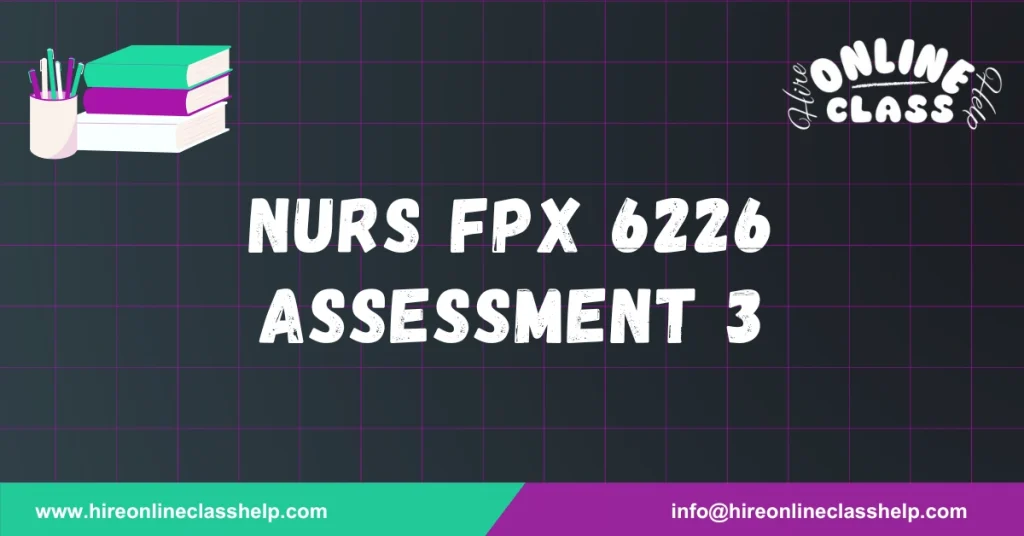







Name
Chamberlain University
NR-501: Theoretical Basis for Advanced Nursing Practice
Prof. Name
Date
Concept analysis plays a pivotal role in advancing nursing practice and theory development. By systematically exploring and defining key concepts, it enhances the understanding of foundational ideas that guide nursing practice. In this assignment, students are tasked with conducting a concept analysis supported by a relevant nursing theory. The aim is to foster critical thinking and enable the practical application of nursing theory in real-world settings. The chosen nursing concept will undergo a thorough analysis through a structured process, including identification of its attributes, antecedents, consequences, and empirical referents.
This paper will present an in-depth analysis of a selected nursing concept, supported by a nursing theory that addresses its relevance and significance. The sections of this paper include the definition and explanation of the nursing concept, literature review, defining attributes, antecedent and consequence, empirical referents, construct cases, theoretical applications, and a concluding reflection on the acquired knowledge.
To effectively analyze a nursing concept, it is essential to begin with a clear definition. For this analysis, we will define the selected concept using scholarly sources, ensuring a comprehensive understanding. This section will delve into the meaning and significance of the concept, supported by scholarly literature that provides a robust foundation for further exploration.
The dictionary may be used as a starting point for definition, but additional scholarly references from nursing literature will substantiate the explanation. This ensures a well-rounded discussion that offers both a theoretical and practical perspective on the concept’s role in nursing.
A thorough literature review forms the backbone of any concept analysis, as it synthesizes existing research and evidence regarding the selected concept. In this section, we will present a detailed discussion of at least six scholarly nursing sources, identifying common themes and ideas. The literature review will explore how the selected concept has been discussed in nursing research and its application in various clinical contexts.
By organizing the themes and ideas from the sources, this section will provide a deeper understanding of the concept’s impact on nursing practice. The review will also highlight gaps in the literature and suggest areas for future research.
Each concept has distinct characteristics that help define its essence. In this section, we will identify and discuss at least three attributes of the selected concept. Attributes are the essential features that give the concept its meaning and differentiate it from other concepts.
This section will be supported by nursing literature, which provides evidence for the identified attributes. By linking the attributes to real-world nursing scenarios, we can better understand how they manifest in practice and how they contribute to the advancement of nursing theory.
Concept analysis also involves examining the antecedents and consequences of a concept. An antecedent is an event or condition that precedes the concept, while a consequence is an event that follows from it.
For this analysis, we will identify one antecedent and one consequence related to the selected concept. This section will explore the relationship between these events, using nursing literature to support the discussion. Understanding the antecedent and consequence helps contextualize the concept and provides insight into its real-world implications.
Empirical referents are objective measures used to assess the presence or absence of a concept. In this section, we will identify two empirical referents for the selected nursing concept and discuss how they can be used to evaluate the concept in practice.
This part of the analysis will be supported by nursing literature, which will guide the identification of valid and reliable methods for measuring the concept. The empirical referents serve as concrete tools for assessing the concept in clinical settings and contribute to evidence-based practice.
Construct cases are a valuable tool in concept analysis, as they help illustrate how the concept is applied in real-life or hypothetical scenarios. This section will include the creation of three types of cases: a model case, a borderline case, and a contrary case.
Theoretical application is central to concept analysis, as it links the concept to a broader nursing theory. In this section, we will discuss the purpose of concept analysis within the context of theory development. We will explain how the selected concept fits within the chosen nursing theory and how it enhances the understanding of nursing practice.
This discussion will be supported by nursing literature, which will demonstrate the relevance of the concept in guiding nursing practice and theory. Theoretical application helps bridge the gap between abstract concepts and practical nursing scenarios, ensuring that nursing theory remains relevant and applicable in everyday practice.
The conclusion will summarize the key findings of the concept analysis, including a recap of the selected nursing concept, the nursing theory it is connected to, and how the concept analysis findings apply to advanced practice nursing. Additionally, the conclusion will include a self-reflection on the knowledge gained throughout the concept analysis process.
This self-reflection will provide insight into how the concept has shaped the student’s understanding of nursing practice and theory, and how it will inform future clinical decision-making. By synthesizing the findings, this section will demonstrate the importance of concept analysis in advancing the nursing profession.
The assignment must adhere to specific formatting and submission guidelines to meet academic standards. The paper should be between six and eight pages, excluding the title page and reference page, and formatted according to APA 6th edition guidelines. A minimum of six scholarly references is required, with sources that are no older than five years unless a valid rationale is provided. All sources must be peer-reviewed nursing literature, ensuring the quality and reliability of the information presented.
The concept analysis assignment provides an opportunity for nursing students to engage deeply with a nursing concept and theory. By completing this assignment, students will not only enhance their theoretical knowledge but also gain practical insights that can be applied to their professional practice. This analysis fosters critical thinking, logical reasoning, and creative problem-solving, which are essential skills for advanced nursing practice.


Get In touch
Let's Connect: We're Here to Help You Succeed!
Have a question or need support? Connect with our team today. We’re ready to assist you with personalized guidance to help you achieve your academic goals. Reach out via email, phone, or our easy-to-use contact form.
For urgent help
+1 (571) 899-4759
Mail us 24/7
info@hireonlineclasshelp.com
Get expert assistance to excel in your courses with personalized support. Our creative approach ensures your academic success every step of the way.
Our Services
Copyright © 2024 hireclassonlinehelp.com All Rights Reserved.

